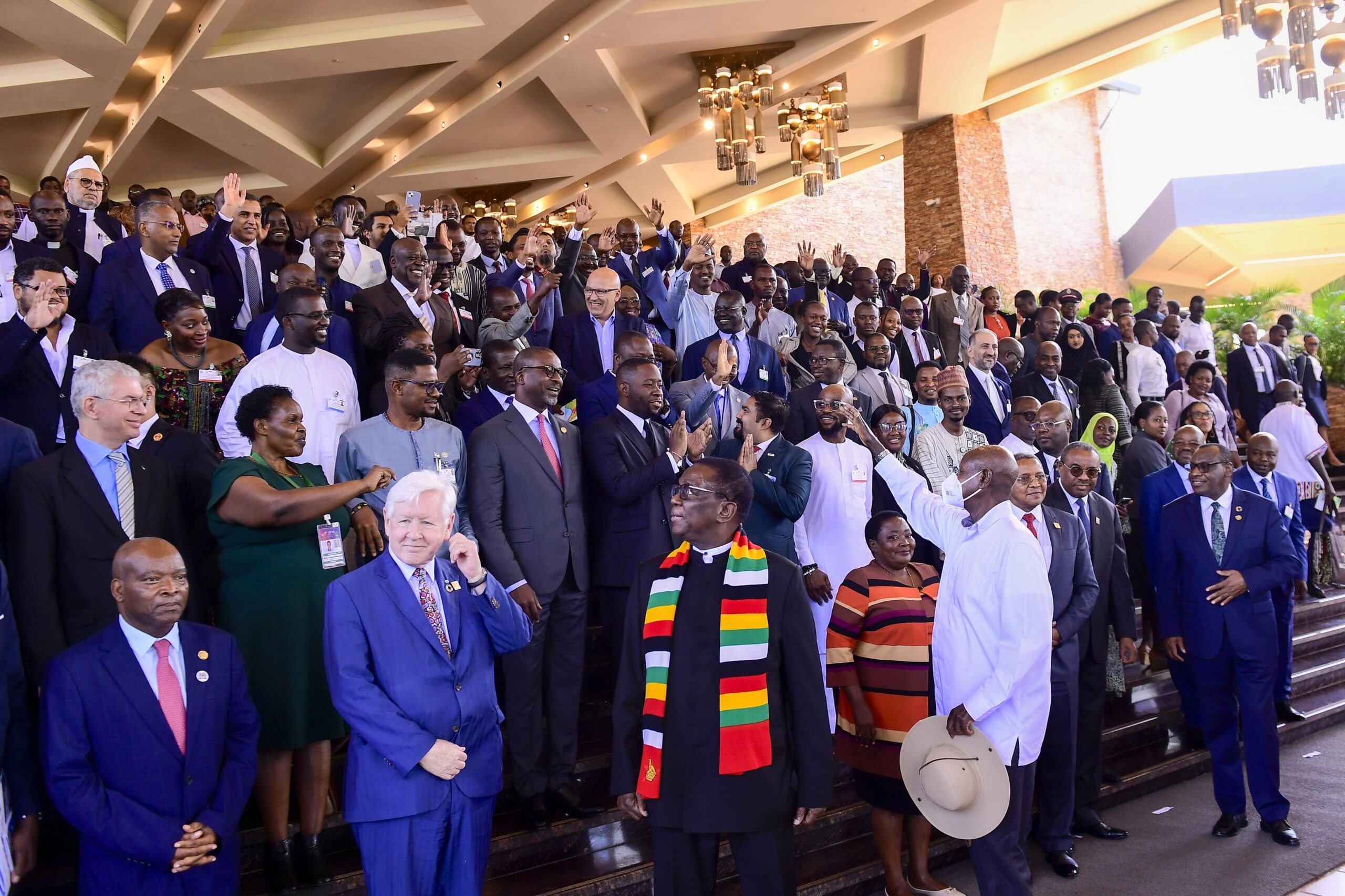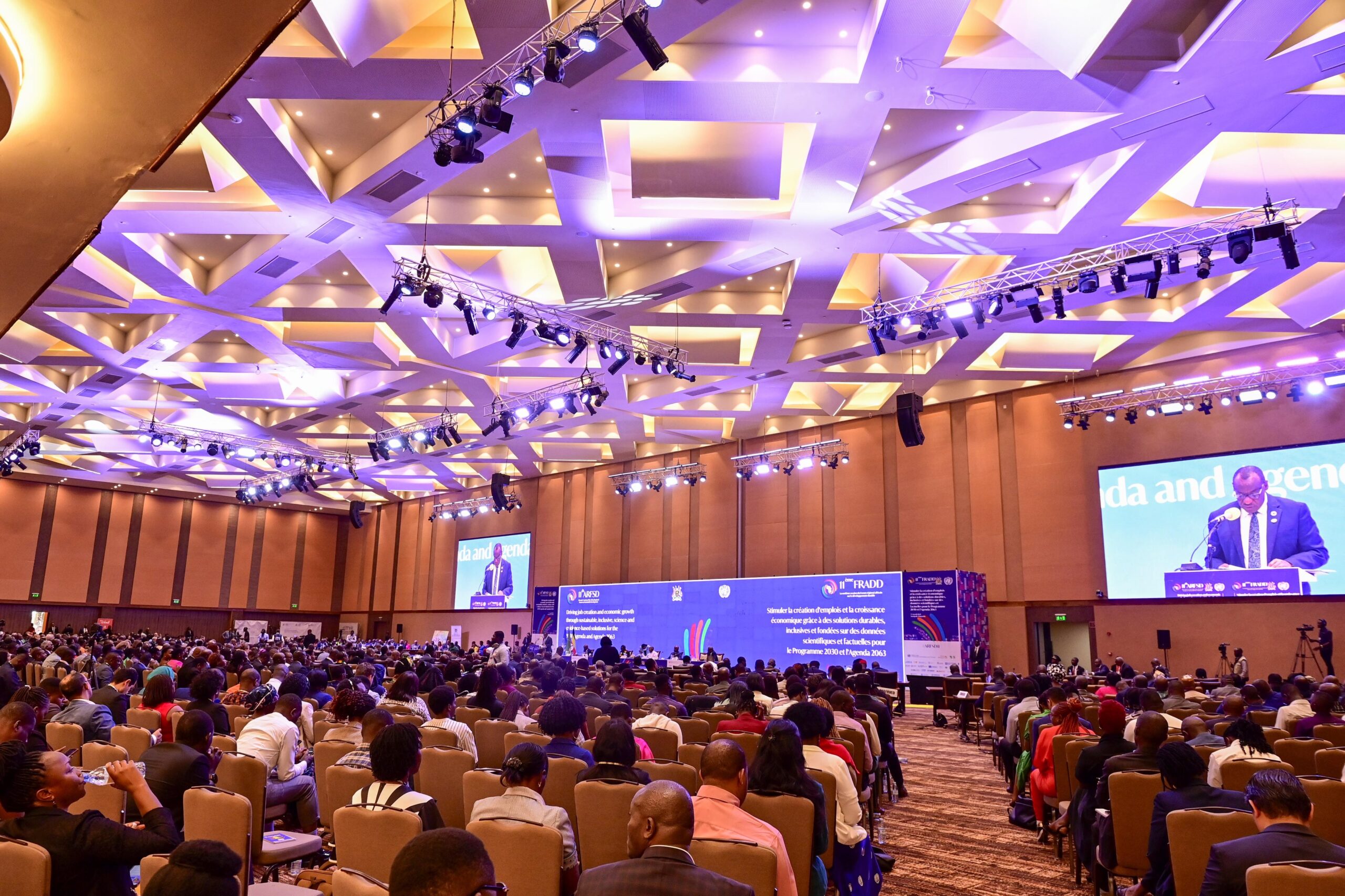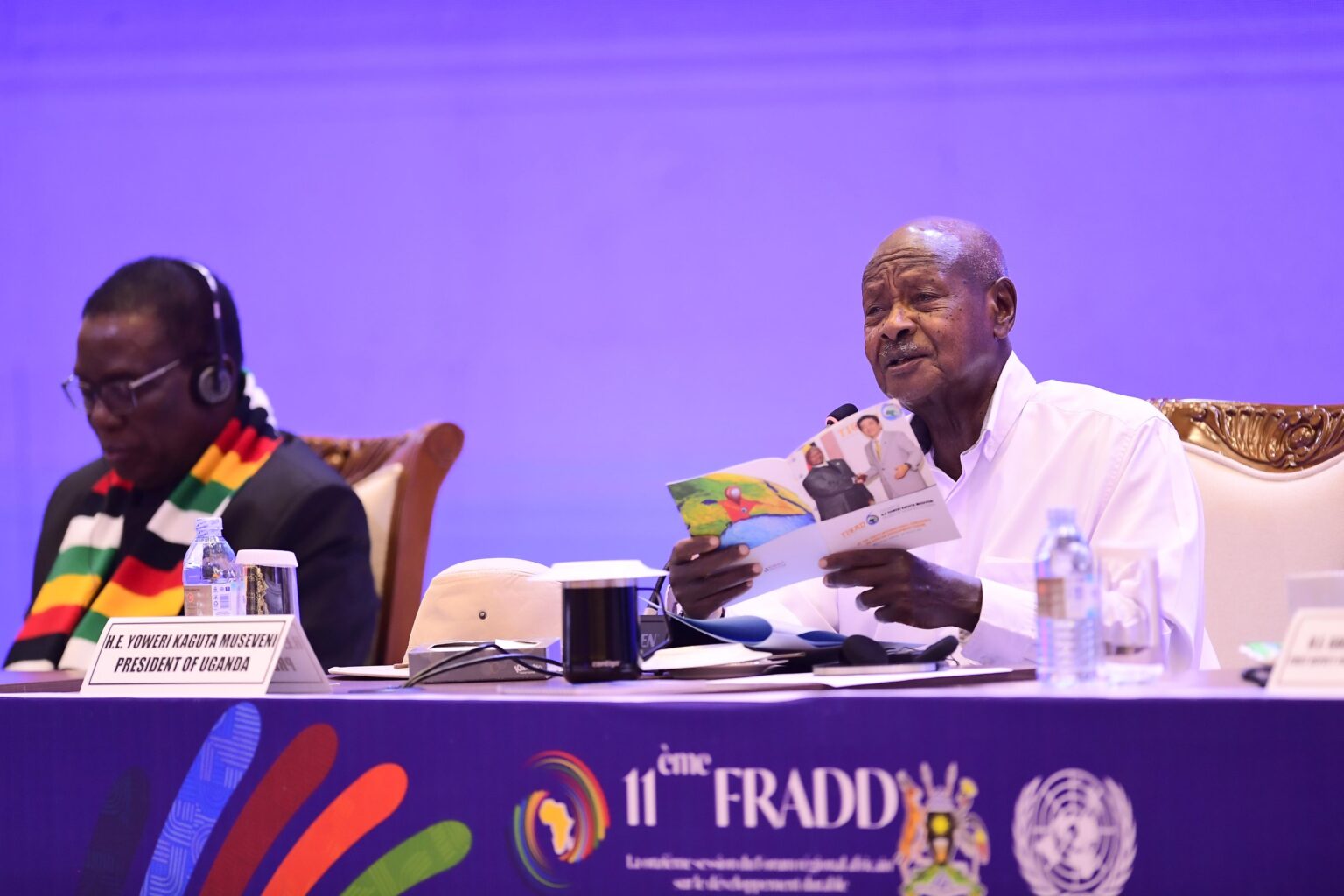The lush lakeside setting of Speke Resort Munyonyo has become the epicenter of continental dialogue as Uganda hosts the 11th Session of the Africa Regional Forum on Sustainable Development (ARFSD).
The high-level forum has drawn distinguished participants from across Africa and the globe, with President Yoweri Kaguta Museveni and President Emmerson Dambudzo Mnangagwa of Zimbabwe leading the discussions.
President Yoweri Kaguta Museveni in his address called for deeper African integration and strategic economic reform, emphasizing Uganda’s resilience and journey towards a modern, knowledge-based economy. The President was delivering the keynote address at the 11th Session of the Africa Regional Forum on Sustainable Development (ARFSD).
In his remarks, Museveni charted Uganda’s economic trajectory from what he termed as an “enclave economy of the 3Ts (Tobacco, Tea, and Tourism) and 3Cs (Coffee, Cotton, and Copper)” that was plundered under Idi Amin’s regime, to its current phase of industrialization marked by vaccine production and automobile manufacturing.

“We moved from economic collapse to minimum recovery, then to diversification, and value addition. Now, we are entering the economy of knowledge, where we make vaccines and even automobiles,” said Museveni.
He stressed that the continent’s challenges could be solved internally once the “10 strategic bottlenecks” holding back development are addressed.
“Uganda has 40 million acres of land suitable for agriculture. If we use only 7 million of these acres and every person creates 7 jobs, we shall generate over 100 million jobs. And that’s only in agriculture—we also have industries, services, and ICT,” he noted.
Addressing recent geopolitical tensions, Museveni referenced Uganda’s anti-homosexuality legislation, which prompted pushback from international actors.
“With the Europeans recently, we passed a law which was discouraging homosexuality here. Then Mr. Biden removed us from their goal list. He chased us,” the President said.
“That was one. Number two, the World Bank stopped giving us loans. But our economy still grew by six percent. We are not bothered with all that,” he added.

He highlighted the importance of unity among African nations to shield themselves from such external pressures.
“What is crucial for me, apart from our own mistakes, is regional integration. If we avoid internal mistakes and are clear about regional integration and the regional market, all those things that happen outside will not concern us,” Museveni said.
The President concluded with a strong call for the structural transformation of African societies.
“We must go from pre-industrial to industrial societies. How can we have a peasant producing another peasant? The peasant must disappear and we must get other classes. I say this and would like to add one important matter, everything we can do and will do relies heavily on African integration.”
Also gracing the occasion are former heads of state, global dignitaries, and senior delegates representing various regional blocs, development agencies, and international organizations. The forum provides a platform for leaders to evaluate progress on the Sustainable Development Goals (SDGs) while mapping out bold, integrated strategies for inclusive growth across the continent.




